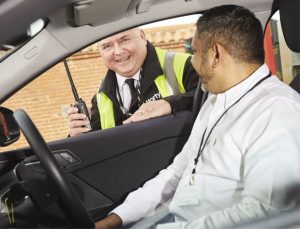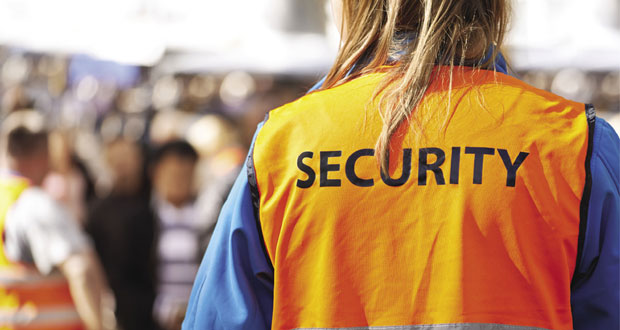RISE OF TECHNOLOGY
Adopting the use of technology to support manned security teams has also been crucial in order to provide the most efficient service. According to Isaac, CCTV access control for instance has proved extremely useful for monitoring sites remotely and allowing, or not as the case may be, visitors into client premises.
When it comes to the use of technology, according to the UK Manned Security Industry Report 2020 the growing digital revolution in the sector could result in the establishment of remote security solutions that reduce the need for personnel. While this is predicted to result in the sector being less labour-reliant, it should also result in a rise in levels of operational efficiency.
Brown believes that the pandemic has only served to speed up the relationship between front line operations and technology. He says: “Having our own technology division has enabled us to adapt more quickly to support increased loan worker activities and to introduce new processes to support recruitment, training and deployment of personnel whilst increasing resilience and improving service quality.
“Online training which is interactive, as well as improved app based interfaces for customer support and communication has helped to create safer environments within which to operate. Looking to the future the pandemic will almost certainly create new interest in technological solutions. Improved surveillance solutions using analytics to improve access management combined with digital technology and physical security measures have the ability to ensure compliance with protocols (such as social distancing criteria and the management of occupancy levels) as they evolve.”
Moore at Bidvest Noonan describes the introduction of a wide range of new technologies. “We invested in systems to allow touchless access control, perform temperature screening, rapidly disinfect equipment, enhance communication, and address many other challenges. To accelerate our innovation and technology programmes, we recruited a highly experienced leader, Stephen Webb, to the newly created role of Director of Technology Solutions.”
PEOPLE POWER
However, for his part, Lotter notes that the calming, empathetic, and agile behaviours of manned guarding officers shown over the past year shows that there isn’t a technology to replace these roles. “Whether we ever will, I don’t know. In many cases, officers found technology a valuable resource for things like tracking building occupancy or taking temperature readings for visitors and staff.”
But he adds: “The pandemic has also made our colleagues’ front of house roles more complex. As a first point of contact, they are responsible for reassuring people and keeping them up-to-date on safety measures, as well as keeping them and client premises safe. We are also seeing higher stress levels and some people refusing to follow precautions. Our colleagues have to find the perfect balance between enforcing rules and looking after people who are anxious.”
Yet despite its huge strides forward, the industry still struggles with a lack of respect, recognition and underestimation of its contribution, according to a report, ‘perceptions of the security officer’ – part of the ‘Hidden Workforce’ campaign by the BSIA, the Security Institute (SyI) and the Security Commonwealth (SyCom). As the economy opens back up, can the security industry build on the recognition of its important role during the pandemic?

Adds Lotter: “As with any challenge, the pandemic has been an opportunity to adapt and learn. We have certainly seen the importance of this throughout the past year and is something that all companies, as well as the regulatory bodies, need to keep at the top of their agenda. We hope that in the next few years, organisations don’t let that slip.”
Brown argues that: “Remaining proactive and agile whilst embedding learnings in our training and preparing for a markedly different landscape in the post-pandemic environment will be essential. This approach combined with great people that are prepared to innovate and embrace technology will ensure the industry thrives whilst helping to protect businesses and communities in the future.”
Sephton of Axis Security Services feels optimistic about the future of the industry.
“We have seen the industry operate through an exceptionally challenging time and emerge with greater abilities, stronger relationships and ground-breaking technologies. The tremendous performance of security professionals across the UK has brought a renewed appreciation for our industry. We are tremendously proud to be part of it.”





